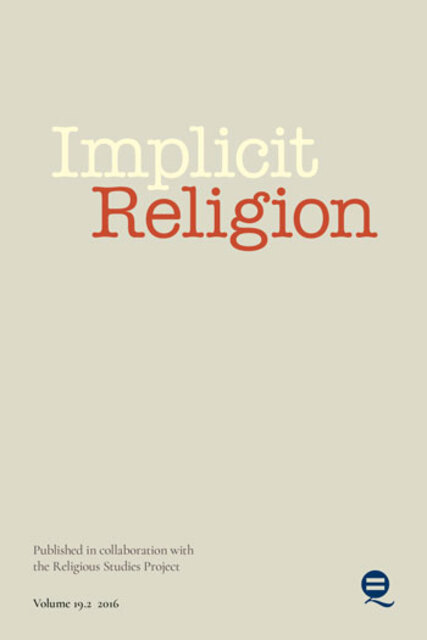The Intersectional Logic of “Bad Religion” Complex Intersections of Religion and other Classificatory Concepts in German Development Cooperation

Full description
Using an example of German Christian development cooperation, this paper examines strengths and weaknesses of an intersectional analysis in relation to “religion.” I will make a twofold argument. First, I will argue that the rhetoric of “bad religion” present in development cooperation is based on an intersectional logic and reproduces marginalization. Second, I will present that intersectional approaches often conceptualize “religion” in an essentialist way. By doing so, I will explore the common features of “development” and “intersectionality,” referred to here as the intersectional logic of development, describe the role of “religion” within it and demonstrate a dualistic logic of reading positions as hegemonic and non-hegemonic within this intersectional logic of development. Drawing on the concept of assemblage developed by Jasbir Puar (2007), this essay concludes by proposing some programmatic considerations that allow addressing these challenges and further developing intersectional studies as well as the critical stu
- typeImage
- created on
- file formatjpg
- file size13 KB
- container titleImplicit Religion
- creatorLeonie C Geiger
- issn1743-1697 (online)
- issue25.1-2
- publisherEquinox Publishing Ltd.
- publisher placeSheffield, United Kingdom
- rightsEquinox Publishing Ltd.
- volume
- doi
We use cookies to analyze our traffic. Please decide if you are willing to accept cookies from our website. You can change this setting anytime in Privacy Settings.
